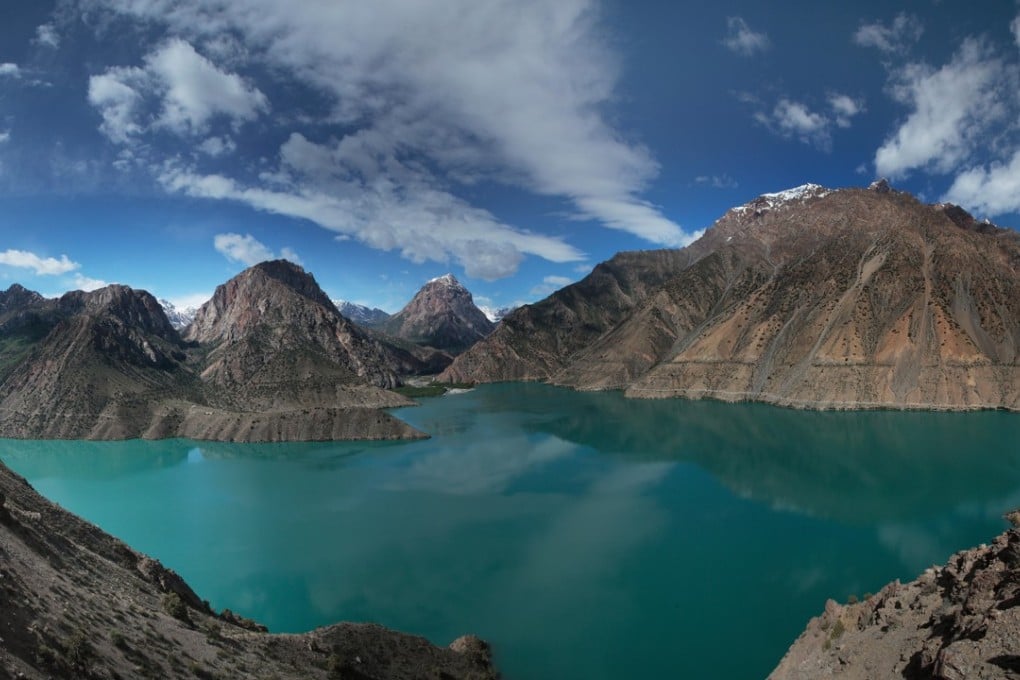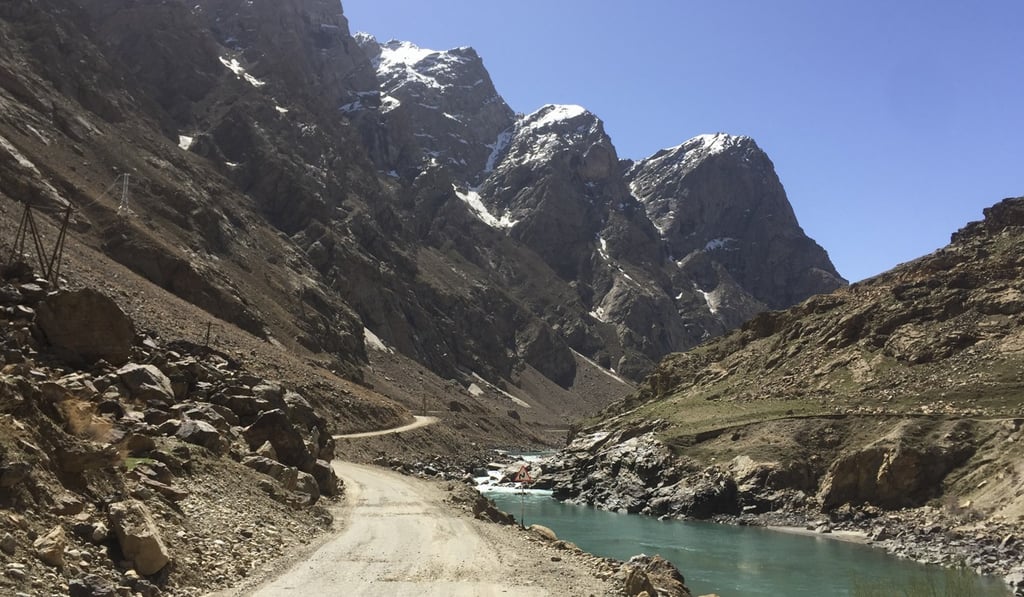In Tajikistan’s Pamir mountains: a road trip across the roof of the world
High-altitude headaches and bone-shaking drives aside, this lonely corner of the planet offers adventures aplenty, with hospitality as genuine as the air is pure

The road to Iskander Kul is a switchback of rough stones and corrugated holes that makes the four-wheel drive judder as I make wildly swerving progress, searching for a smooth line that doesn’t exist. Shepherds and their goats occasionally block the way and rock faces rear up, making progress seemingly impossible, before the road swings left or right abruptly, searching for a weakness and plunging through a gap on its unlikely progress.
Clouds mass and the windscreen freckles with spots of rain, loosening hours of dust. I crest a hill and glimpse the lake for the first time, the sun shooting fingers through the grey parchment and laying sparkling sovereigns of light on the water, turning it from steel to burnished copper.
Iskander Kul means “Alexander’s lake”, Alexander the Great having passed through this part of western Tajikistan in the 4th century BC, during his campaigns in Central Asia. Its water is crystal clear and oh so very cold. Two massive breast-like hills frame the snowy bulk of Mount Sarytag and, all around, the dark green of mulberry trees contrasts with the dense rock and the lake, now opal blue beneath the brightening sky.
Tajikistan’s president, Emomali Rahmon, knows the value of a good view, having built a large and discordant holiday dacha and residence halfway around the lake shore, but I prefer the cafe that sells only 3-in-1 powder coffee, ice creams and batteries and the crumbling Soviet resort where I eat greasy mutton dumplings and sit with my feet in the sun after a brief encounter with the freezing lake.
The road south passes the capital, Dushanbe, then through hills covered in flowering gorse before passing over the modest Shurabad Pass, beyond which soldiers lounge by a flimsy gate to Tajikistan’s true mountain country, the Gorno-Badakhshan Autonomous Oblast (GBAO).
